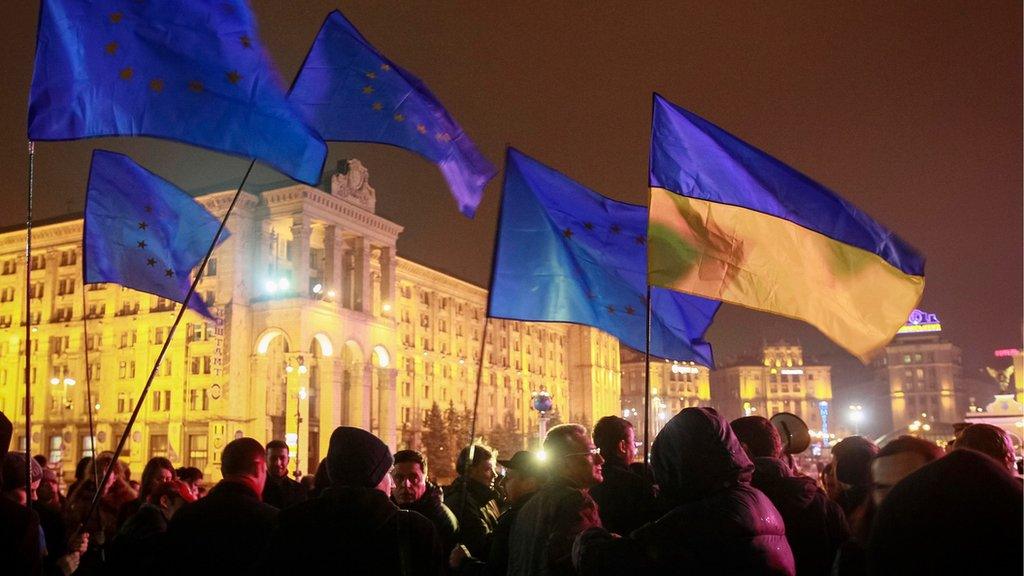Ukraine president firm over EU 'U-turn' amid protests
- Published
Protesters and riot police clash during a rally in Kiev
Ukrainian President Viktor Yanukovych has defended his move to put on hold a historic deal with the EU, amid continuing mass protest rallies.
He said he was forced by economic necessity and the desire to protect those "most vulnerable".
The EU has accused Russia of exerting heavy economic pressure on Ukraine.
Clashes between protesters and police continued on Monday. Meanwhile, jailed opposition leader Yulia Tymoshenko announced an indefinite hunger strike.
'No alternative'
Mr Yanukovych was speaking publicly for the first time since the announcement on Thursday that his government was halting preparations to sign the association and free trade agreements with the EU.
The decision triggered mass protests in Kiev and a number of other cities across Ukraine.
"I want peace and calm in our big Ukrainian family," Mr Yanukovych said in a video statement, describing himself as a "father".
He stressed that his government had not given up attempts to bring closer ties between Ukraine and the EU.
"I would like to underline this: there is no alternative to the creation of a society of European standards in Ukraine and my policies on this path always have been, and will continue to be, consistent.
"But I would be dishonest and unfair if I had not taken care of the most disadvantaged and vulnerable, who may carry the brunt during a transitional period."
Mr Yanukovych's government last week said it was halting preparations for signing the treaties, amid concern for possible mass job losses in the short-run.
Opponents are accusing the president of keeping talks with the EU alive while never intending to sign the deal at an EU summit in Vilnius, Lithuania, on 28-29 November.
Yulia Tymoshenko's daughter Eugenia said her mother was going on hunger strike to support the protesters
They also say he has bowed to growing pressure from Russian President Vladimir Putin, who wants Kiev to join the Moscow-led Customs Union. The grouping also includes Belarus and Kazakhstan.
Mr Putin denies the claims, instead accusing the EU of trying to "blackmail" Kiev into singing the agreements.
European Council President Herman Van Rompuy and European Commission President Jose Manuel Barroso said on Monday the door was still open for Ukraine to sign the agreements at the summit in Vilnius.
"The Eastern Partnership is conceived as a win-win where we all stand to gain," they said.
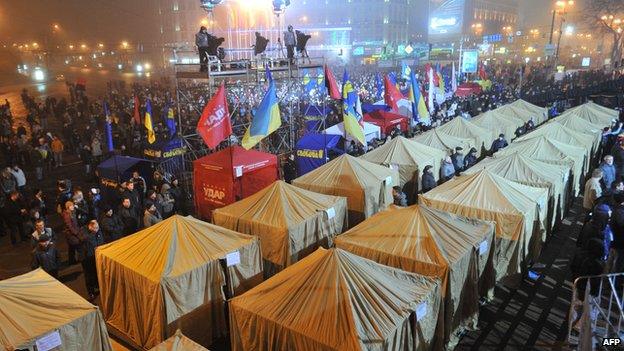
Activists erected tents in Kiev in a scene reminiscent of the Orange Revolution in 2004
"It is up to Ukraine to freely decide what kind of engagement they seek with the European Union.
"We strongly disapprove of the Russian position and actions."
Orange Revolution-2?
More than 100,000 people massed in Kiev's European Square and Independence Square on Sunday, calling for a "European future without Yanukovych".
Riot police used tear gas against demonstrators on Sunday and again on Monday, saying they had been pelted with objects.
Meanwhile, protesters have set up tents, implying they are planning to stay for the long haul.
The continuing protests are reminiscent of the Orange Revolution in 2004, which was sparked by anger over Mr Yanukovych's declared victory in a presidential election his opponents said was rigged.
Tymoshenko, one of the leaders of the revolution who was jailed in 2011 for abuse of power, said on Monday she was starting a hunger strike in solidarity with the protesters.
She launched a similar fast last year in protest at her treatment, but stopped it after 20 days.
The EU has made her release from prison one of its conditions for signing the association agreement.
- Published26 November 2013
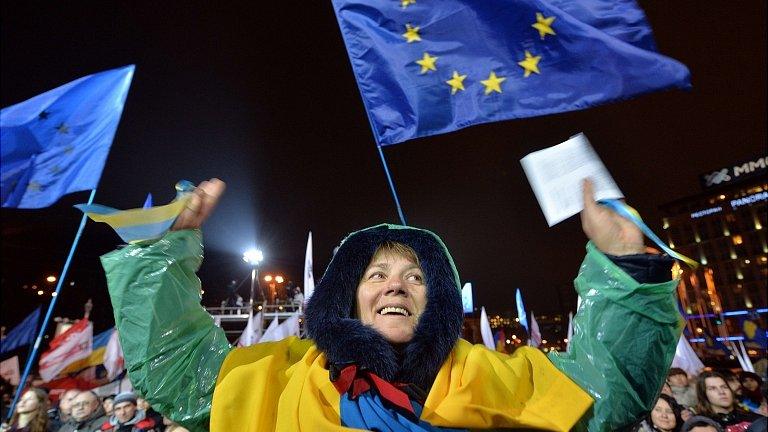
- Published25 November 2013
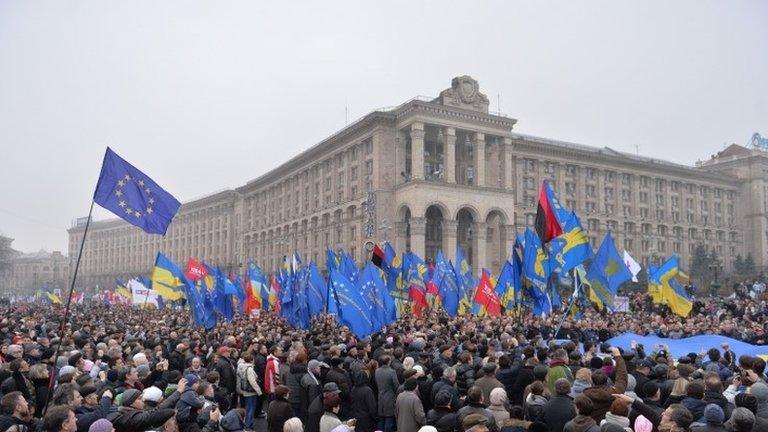
- Published25 November 2013
- Published27 January
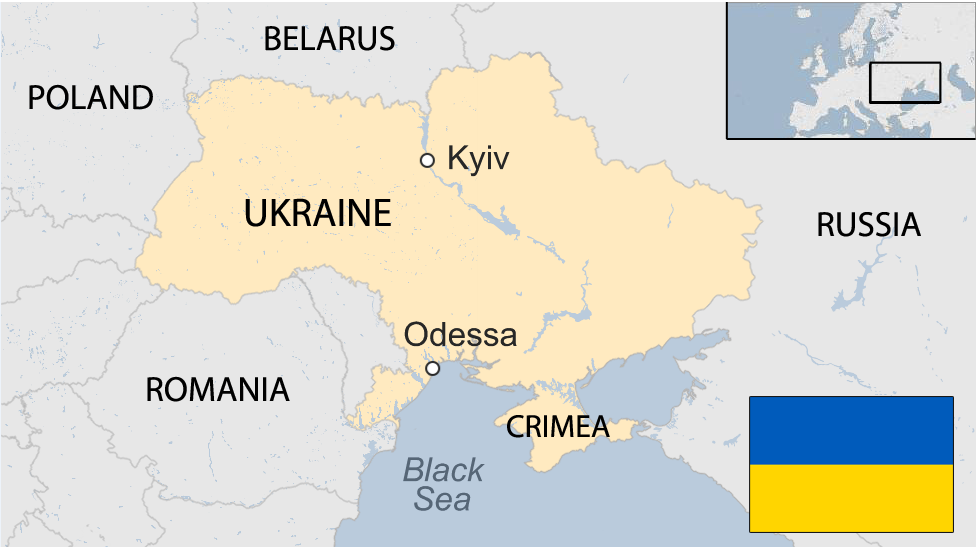
- Published22 November 2013
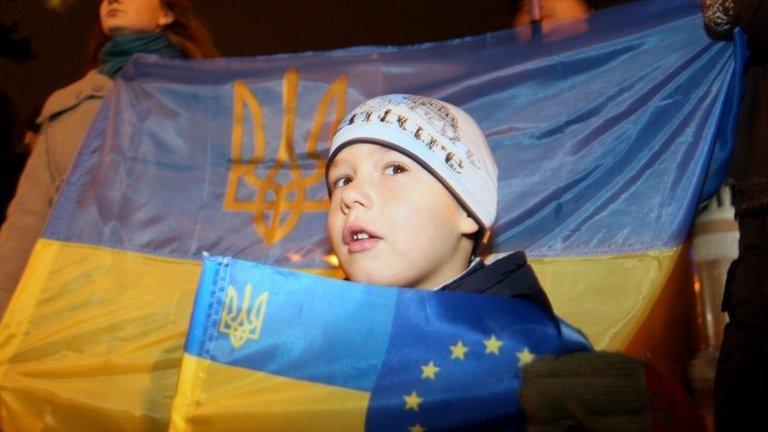
- Published22 November 2013
